Google’s Business Profile System Is Fundamentally Broken: Why We Only Recommend Front-End Edits

Last Updated on 16 January 2026 by Dorian Menard
Google’s Business Profile system is completely backwards. Real business owners get suspended for making simple updates like changing phone numbers, while scammers easily create fake listings using user-suggested edits.
My advice in 2025 after managing GBPs for years and dealing with countless profile reinstatements? Never edit your profile directly anymore. Use a separate Google account with Local Guide status to suggest changes from the front end instead. It’s ridiculous, but it works.
Let me be blunt: Google’s Business Profile management is broken beyond repair.
I’ve been helping businesses navigate this mess for years, and what I’m seeing now is frankly absurd. Legitimate business owners are being punished for doing basic maintenance on their profiles, while lead generation scammers (I plead guilty to being one of them in the past) are creating thousands of fake listings without consequence.
The system has become so dysfunctional that I now advise all my clients to stop making direct edits to their own business profiles entirely.
Why Google’s System Punishes Real Business Owners
Here’s what’s happening right now across Australia and beyond:
- A restaurant owner updates their phone number after switching providers. Result: Immediate suspension for suspicious activity.
- A solicitor adds a new practice area to their categories. Result: Re-verification request that takes weeks to resolve.
- A plumber corrects their address after moving premises. Result: Profile locked pending documentation review.
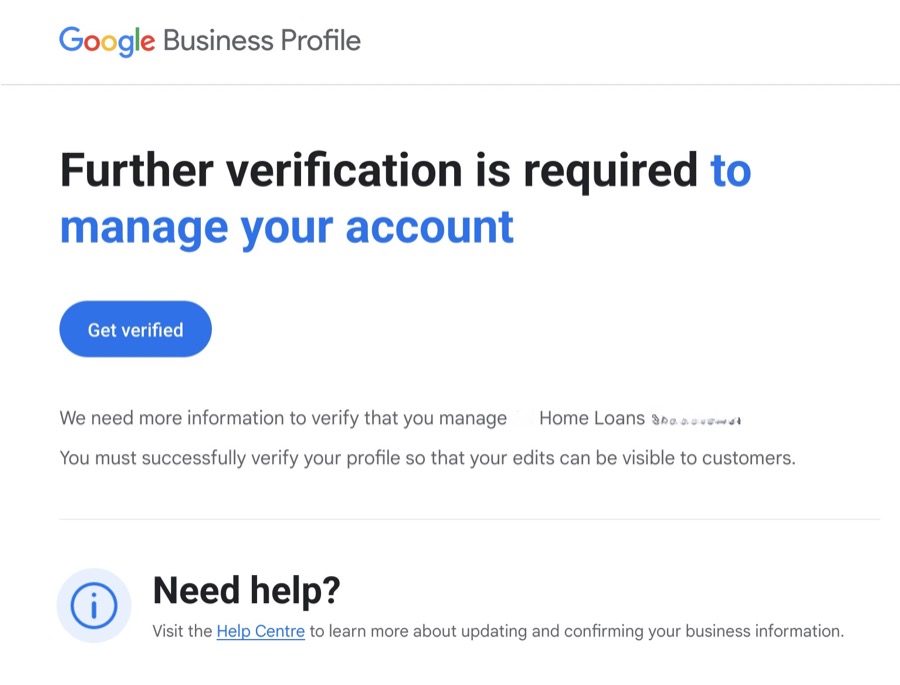
These aren’t edge cases—they’re happening daily. Google’s algorithms have become so trigger-happy that routine business maintenance is treated as suspicious activity.
Meanwhile, any random person can suggest edits to your business profile, and those changes often go live immediately without verification. The very people who own and operate the businesses have less editing power than complete strangers.
The Common Triggers That’ll Get You Suspended
Based on hundreds of reinstatement cases my team and I have handled, here’s what’s guaranteed to trigger Google’s wrath:

The pattern is clear: Google treats verified business owners like potential fraudsters while giving random users free rein to edit business information.
How Lead Gen Agencies Are Gaming The System
This broken trust model hasn’t gone unnoticed by opportunistic lead generation agencies and SEOs. They’ve turned Google’s backwards logic into a profitable business model (and I am not the one blaming them here).
Here’s their playbook:
Step 1: Use high-level Local Guide accounts to suggest “edits” on Google Maps and set up fake businesses at a given address. The trick is to fill everything out correctly right off the bat in order to avoid editing anything on it in the future (which triggers verifications or, worse, suspensions).
Step 2: Claim them a few days later using an aged Gmail account from the official GBP backend.
Step 3: Generate fake reviews, add pictures, and optimised content/posts to boost rankings. Yes, fake reviews still work when well done.
Step 4: Sell the leads generated to real businesses.
It’s working because Google’s system trusts user-generated edits more than changes made by verified business owners. A scammer with a Level 7 Local Guide account can create and modify fake listings faster than a legitimate business owner can update their opening hours.
We have tested this method and are happy to report that it works really well:
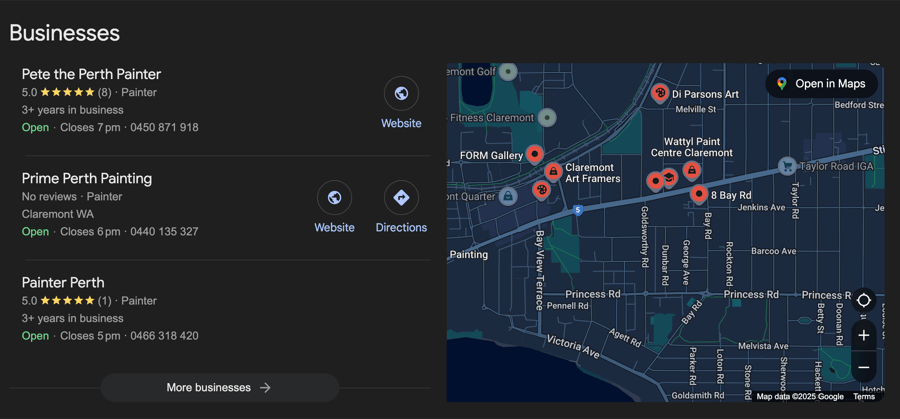
Google itself has filed lawsuits against massive fake listing networks, yet the underlying system vulnerabilities remain completely unaddressed.
The Front-End Editing Strategy (And Why It Works)
Given this dysfunctional system, I’ve developed a workaround that exploits the same vulnerabilities as the scammers—but for legitimate purposes. Nothing groundbreaking here, and I am not claiming a pattern for this.
The strategy is simple: Stop editing your business profile directly. Instead, use a separate Google account to suggest edits from the front-end.
Here’s How to Do It Properly
- Create a dedicated Google account (not connected to your business) or use an aged one (even better)
- Make it bulletproof by filling in everything in your account profile, adding 2FA, doing all sorts of verifications, and “seasoning” it properly.
- Build Local Guide credibility by making legitimate map contributions over several months or years
- Age the account with consistent, genuine activity
- Use this account to suggest edits to your own business profile (from the front-end of Google Maps)
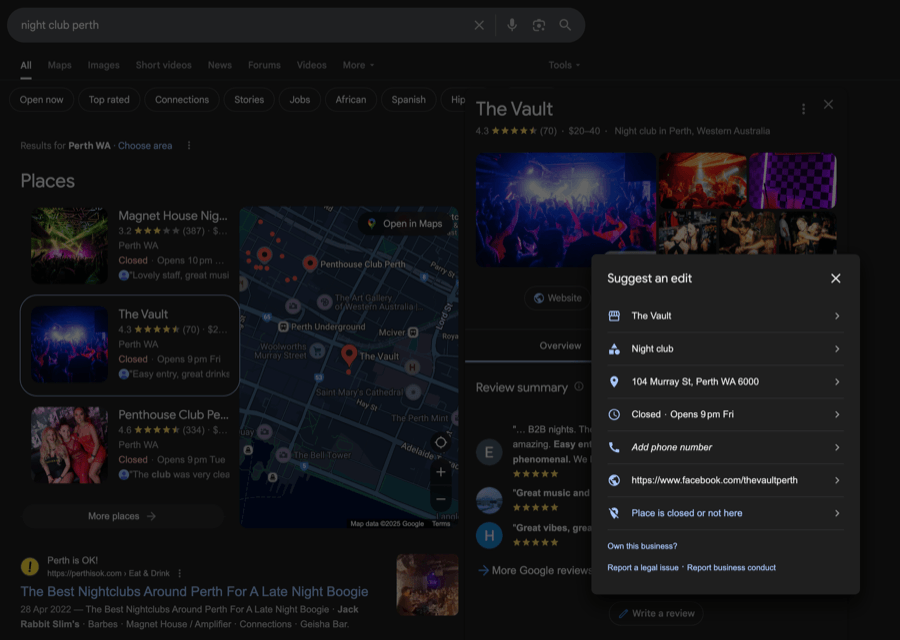
I know it sounds absurd. Business owners shouldn’t have to pretend to be random users to update their own information. But this is the reality of Google’s broken system.
Why This Method Works
Google’s algorithms place enormous trust in Local Guide accounts, particularly those with higher levels and consistent contribution history. These “user suggestions” bypass the triggers that cause suspensions when business owners make direct edits.
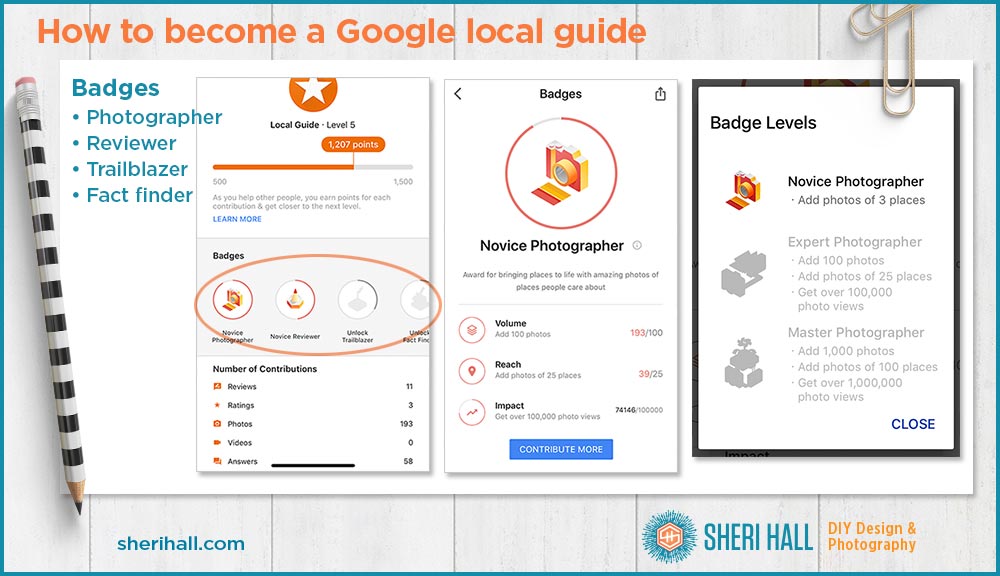
It’s exactly the same information—but Google treats it completely differently based on who submits it.
The Documentation Nightmare
When suspensions do happen, Google’s appeal process is another exercise in frustration.
You have two chances to appeal. The documentation requirements are unclear and often impossible for modern businesses to meet. Home-based businesses, service-area companies, and those using co-working spaces face particular challenges.
I’ve seen perfectly legitimate businesses with decades of operation struggle to provide documentation that meets Google’s arbitrary standards. Meanwhile, the fake listings created by lead gen agencies continue operating without any scrutiny.
The Real Cost of This Broken System
This isn’t just an inconvenience—it’s actively damaging the business ecosystem:
- Legitimate businesses lose visibility during GBP suspension periods, often for weeks or months
- Customers receive incorrect information from unchecked user edits
- Scammers profit from fake listings whilst real businesses struggle with compliance
- Local search results become unreliable as fake listings proliferate
The irony is staggering: Google created this system to prevent fraud, but it’s actually enabling it on an industrial scale.
What Google Needs to Fix (But Probably Won’t)
The solution is obvious but would require Google to admit their approach is fundamentally flawed:
- Trust verified business owners to update their own information
- Scrutinise user-generated edits more carefully
- Provide transparent guidelines about what triggers re-verification
- Allow multiple appeals with clear documentation requirements
- Implement reasonable review timeframes instead of indefinite suspensions
Until these changes happen (and I’m not holding my breath), businesses need to adapt to this broken reality.
My Recommendations for Business Owners
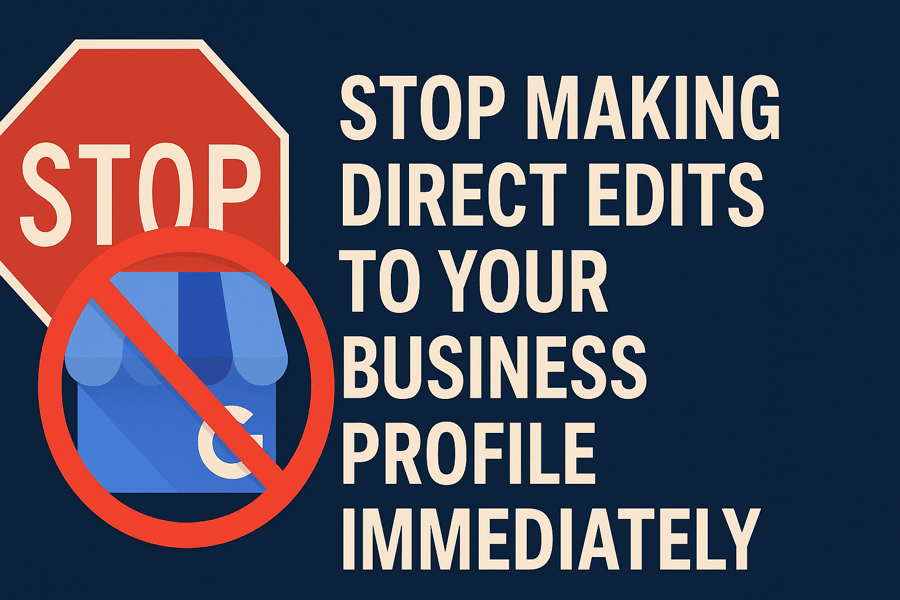
1 – Stop making direct edits to your business profile immediately. The risks far outweigh any convenience.
2 – Set up a front-end editing system using a separate Google account with Local Guide status. Yes, it’s ridiculous, but it works.
3 – Monitor your profile religiously for incorrect user-suggested edits and correct them using your front-end account.
4 – Keep comprehensive documentation ready for the inevitable suspension appeal, even if you’re doing everything “right.”
Consider professional help by contacting our GBP reinstatement experts, if you’re already suspended or if your business depends heavily on Google visibility.
The Bottom Line
Google’s Business Profile system has become a cautionary tale about what happens when algorithms replace common sense.
The platform now punishes the very people it should be supporting whilst providing clear pathways for exploitation by those with malicious intent. Business owners are forced to play elaborate games of deception just to maintain accurate information about their own enterprises.
Until Google fixes these fundamental flaws, the front-end editing workaround remains the safest way to manage your business profile. It’s a symptom of a broken system, but it’s also the reality we’re working with.
The choice is yours: adapt to Google’s backwards logic or risk losing your online visibility entirely.
Sources
- Business Insider – Google lawsuit reveals massive abuse of fake business profiles
- Google Support Community – Understanding suggested edits and their issues
- DAC Group – Small Google Business Profile updates triggering re-verification
- Need Momentum – Causes for Google Business Profile suspensions
- DBA Platform – Removal of fake Google My Business profile listings